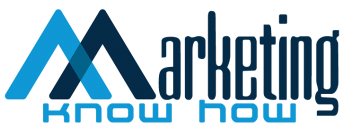Every piece of technology eventually becomes outdated. It won’t last forever.
A revolutionary change for ERP systems for small businesses occurred with the introduction of the internet and cloud computing technologies. People have become more accustomed to utilising mobile applications on their smartphones, tablets, and laptop browsers. They immediately expect and eventually demand, the same simplicity of use and flexibility from their ERP for small business systems.
So, If your ERP system is lagging behind and nearing the end of its life cycle, it’s time to reconsider your requirements and weigh your options. Perhaps, switching to a cloud-based software might do you good.
Now, what is End-of-Life technology?
EOL is an abbreviation for “end of life,” which happens in both hardware and software. It is the phase of a product’s lifecycle when the manufacturer stops supporting or updating it.
The main danger of software going out of service is that it can leave your system vulnerable to security breaches. Maintenance patches repeat because they frequently address security flaws and adapt to the evolving nature of hackers and technology.
When it comes to your existing ERP software, end-of-life technology must be taken seriously. Before we delve into the solutions available, on-premise ERP possesses a few significant concerns to address:
- Reducing security issues is the ultimate reason for replacing on-premise ERP software that has reached its end of life. When something becomes EOL, the vendor stops delivering security updates for it. This poses a danger that hackers could access your application through an unpatched vulnerability.
- In general, developers want to use the most recent and advanced technologies. Once something has reached the end of its useful life, it is no longer in this stage. This could indicate a reluctance among existing users to learn the technology or for those who already know it to continue using it.
- There is a high likelihood that using outdated technology will affect how well your software or hardware performs. The possibility is that you won’t be able to access the most recent programmes if you’re using an operating system that is nearing the end of its lifespan.
These days, users prefer an automated and intelligent software—that can alert them when an exception occurs or define a process in advance. They desire easily customizable dashboards that connect them to relevant details with a single click. Moreover, they require solutions that examine and increase their revenue and sales from numerous angles.
Now, businesses demand worldwide technologies that can manage diverse currencies and legal frameworks with its ever-expanding global economy. By retaining their users on a single, totally integrated platform, they can establish international subsidiaries and alliances better. Businesses also desire the opportunity to customise their resource planning systems to meet their preferences and needs.
All of this has become the standard in the ERP sector.
To put it simply, these benefits simply cannot be supported by legacy and on-premise software with their outdated features and aspects.
The Future Of ERP is Cloud.
How Cloud ERP is transforming the way businesses operate
The most convenient and cost-efficient method for SMEs to link vast amounts of data, process them for insightful information, and then use that information to increase operational efficiency is through cloud ERP solutions.
Cloud ERP provides the connection and scalability required to fully leverage technology, big data, and mobility. When businesses consolidate all of their data into one location, such as an ERP programme or data warehouse, that vault becomes the company’s go-to source for information. Decision-makers can better comprehend past business patterns thanks to the data consolidation necessary to shift to the cloud. As a result, they can use this information to prepare for the business’s future. There are enormous chances to increase efficiency owing to cloud ERP and its analytical capabilities and increased opportunities to collect machine and production data.
The good news is that you can upgrade to a new ERP solution with new features if your current ERP is approaching its end-of-life date. It is important to note that in order to make use of all the advantages, the appropriate ERP must be found. Prior to deploying an ERP solution, you can outline requirements and business objectives. There are numerous solutions on the market today to match your business demands, but in order to obtain a great return on investment, you must choose the best fit.
This is where GenieBooks comes in, an integrated ERP software that is 100% cloud-based. This provides new and updated features that can promote growth, increase efficiency, reduce costs, simplify operations, and provide you with better access to your data through improved business analytics.
Here are some of the aforementioned solutions GenieBooks provides in regard to EOL technology:
- GenieBooks offers the highest level of privacy and security that the internet has to offer to allow you an efficient accounting experience. All of your crucial business papers are encrypted within the platform and are immune to breaches and hacks.
- GenieBooks is a cloud-based enterprise resource planning (ERP) system that gives users online access to ERP. With the help of the cloud, you may access fully functional applications for a fair price without needing to pay out a lot of money upfront for technology and software, significantly lowering your IT costs.
- With GenieBooks, you can store an unlimited amount of data without worrying about the hardware you have or stress about upgradation when your data grows. Thus, proving the fact that switching to a cloud-based option benefits your business rather than today’s outdated EOL accounting software.
- Without proper enterprise resource planning, accounting is likely to become challenging if you own an online retail store. GenieBooks cloud-based ERP makes it simpler to maintain track of your accounts and update data hourly. Additionally, it enables you to create invoices and handle returns without having to deal with the hassle of filing and storing paperwork. With our cloud ERP, you can easily expand your store and deal with rising order quantities without concern.
Modern companies require an accounting solution that can expand as their operations do. To enhance operational flexibility, your accounting software should also be adaptable to ever-changing trends and upgrades. With GenieBooks Cloud ERP, you have the resources to run end-to-end business operations with control, gain lucid insights into your business and stay compliant while doing so.




